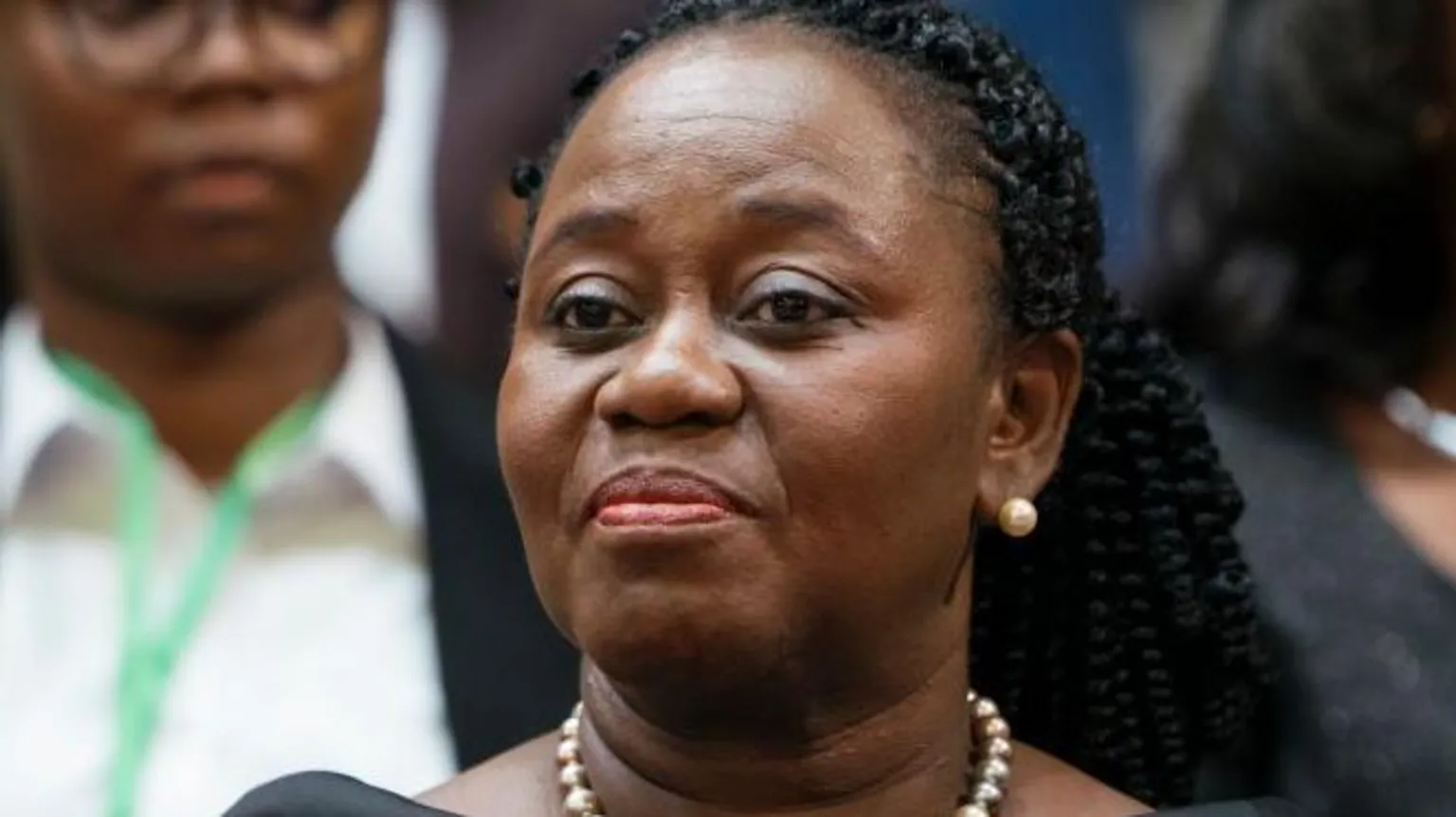
Gertrude Torkornoo is Ghana’s third female Chief Justice. Image Credit:Getty Images
(The Post News) – President John Mahama has dismissed Ghana’s Chief Justice Gertrude Torkornoo after an investigative panel recommended her removal from office. The dismissal marks the first time in Ghana’s history that a sitting chief justice has faced such scrutiny and removal.
Investigative Panel Reviews Gertrude Torkornoo
The presidency announced on Monday that President John Mahama acted on the advice of a five-person committee he set up to investigate multiple complaints filed against Chief Justice Gertrude Torkornoo earlier this year. The panel concluded that “reasons of indicated misconduct” had been established and urged the president to dismiss her.
Mahama suspended Torkornoo in April after three individuals submitted grievances questioning her conduct. He then created the investigative committee to examine the complaints and gather evidence. The committee reviewed 10,000 pages of documentation and heard testimony from 13 witnesses who represented petitioner Daniel Ofori.
Chief Justice Torkornoo testified in her own defense and summoned 12 additional witnesses, including legal experts. Despite her efforts, the panel ruled that the charges justified her dismissal.
She rejected the allegations as politically motivated and insisted that her critics sought to undermine judicial independence.
President Mahama’s Dismissal Sparks Political Tensions
President John Mahama’s decision to dismiss Chief Justice Gertrude Torkornoo has sparked political and legal debate across Ghana. The presidency defended the action, arguing that Mahama was constitutionally obliged to follow the committee’s advice.
Ghana’s constitution grants tenure security to the chief justice, limiting removal to cases of incapacity or misconduct. Despite this protection, Gertrude Torkornoo became the first chief justice to be investigated and removed.
Former President Nana Akufo-Addo appointed her in 2023, making her Ghana’s third female chief justice. She had earlier survived a removal petition under Akufo-Addo, who dismissed it as having “multiple shortcomings.”
The New Patriotic Party (NPP) condemned her suspension in April, labeling it political persecution and a threat to judicial independence. Courts dismissed several legal challenges contesting the removal process, clearing the way for President Mahama’s final decision.
Implications for the Ghana Judiciary
Observers remain divided on the implications of the dismissal. Some argue that President John Mahama acted within the law and reinforced accountability in the Ghana judiciary. Others believe the dismissal damages judicial independence and sets a dangerous precedent.
Former deputy attorney general Alfred Tuah-Yeboah criticized the verdict as “risky,” warning: “The petition I reviewed showed no sufficient grounds to justify her dismissal… If the standard is what we read in the petition, then I worry for the judiciary’s future.”
Two additional complaints against Gertrude Torkornoo remain pending. Analysts warn that the controversy has already shaken confidence in the Ghana judiciary and intensified concerns about executive interference.
Whether interpreted as a constitutional necessity or a politically motivated act, President John Mahama’s dismissal of Chief Justice Gertrude Torkornoo stands as a watershed moment for Ghana’s democracy and the future of its judiciary.
The dismissal of Chief Justice Gertrude Torkornoo by President John Mahama has left a lasting mark on the Ghana judiciary and stirred wide debate about the balance of power in the country’s democracy. Supporters of the president’s decision argue that Mahama acted within his constitutional mandate and responded to clear findings of misconduct by the investigative panel
Critics, however, insist that the dismissal undermines judicial independence and sets a precedent that could expose future judges to political interference. Many Ghanaians are left questioning whether the removal of Torkornoo was a necessary act of accountability or a dangerous erosion of judicial security.
President John Mahama’s decision will influence how Ghanaians perceive both the judiciary and the presidency for years to come, making Torkornoo’s dismissal not just an isolated event, but a defining episode in the evolution of Ghana’s democratic governance.



